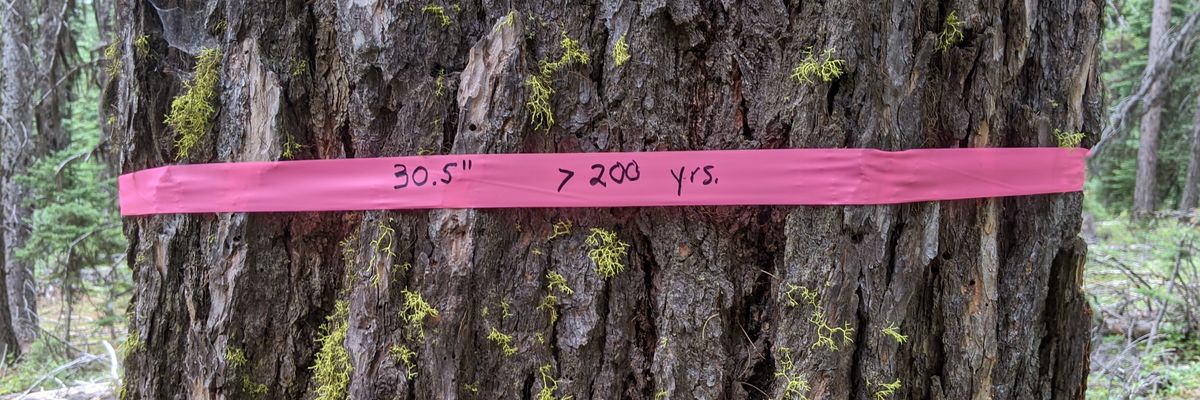Two days before he left office, a political appointee for President Donald Trump removed protections from old-growth trees in Oregon and Washington. On Thursday, U.S. Magistrate Judge Andrew Hallman ruled that decision was illegal.
Hallman vacated the U.S. Forest Service's finding that the change would have no impact, and ordered the agency to carry out a full environmental impact statement of the proposal, as The Associated Press reported.
"It's a shame that we needed a court to tell the Forest Service that they must follow the bedrock environmental laws that have been in place for decades," Jamie Dawson of Greater Hells Canyon Council said in response to the ruling. "Completing a full public process and taking a hard look at the environmental impacts of their actions is the least they should be doing, especially when considering such an impactful decision."
"The Forest Service rushed through a politically motivated rule change to log the most ecologically important trees left on our landscape."
The last-minute Trump administration rollback targeted something called the Eastside Screens. These were put in place in the mid-1990s to protect the Pacific Northwest's old-growth forests after decades of logging had put them at risk, Oregon Wild explained. They prohibited loggers from targeting any trees east of the cascades larger than 21 inches in diameter. The screens protected trees in six national forests in eastern Oregon and Washington, comprising more than seven million acres of public land.
While these trees only make up around 3% of trees in the region, they provide vital habitat for wildlife, and recent research indicates that they store 42% of the forests' carbon, playing an important role in combating the climate crisis.
"The Forest Service rushed through a politically motivated rule change to log the most ecologically important trees left on our landscape," Chris Krupp of WildEarth Guardians said in a statement. "Sadly, this is in line with their well-earned reputation for putting logging before the need to address the climate and biodiversity crises."
WildEarth Guardians and Greater Hells Canyon Council were two of the groups that sued to reverse the rollback on June 14, 2022, along with Oregon Wild, Central Oregon LandWatch, Great Old Broads for Wilderness, and the Sierra Club. The groups also had the support of the Nez Pierce Tribe.
In changing the rule, the Trump administration argued that it was protecting the forests from wildfires.
"We're looking to create landscapes that withstand and recover more quickly from wildfire, drought, and other disturbances," Ochoco National Forest supervisor Shane Jeffries told Oregon Public Broadcasting at the time, according to AP. "We're not looking to take every grand fir and white fir out of the forests."
However, in the years since the rule change, the Forest Service has proposed logging larger trees on thousands of acres of Oregon forest, including previously untouched forests in Hells Canyon National Recreation Area.
"Individually and collectively, these projects will damage wildlife habitat, contribute to climate change, deplete important carbon stores, and harm other environmental, social, and cultural values at a time when we simply can't afford to move in the wrong direction," Oregon Wild wrote.
In their lawsuit, the groups said that the last-minute rule change violated the National Environmental Protection Act, National Forest Management Act, and the Endangered Species Act by failing to take into account its impacts and not allowing the public enough time to comment.
The judge agreed.
"The highly uncertain effects of this project, when considered in light of its massive scope and setting, raise substantial questions about whether this project will have a significant effect on the environment," Hallman wrote, as AP reported.
The green groups behind the suit are pleased with the ruling, but also think the Biden administration could do more to protect forests, in line with an Earth Day Executive Order to take stock of the nation's remaining old-growth forests and develop a plan to protect them from wildfires and other threats.
"We call on the Biden administration to stop defending this illegal Trump rule change," Rob Klavins of Oregon Wild said in a statement.

